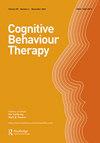CT-PTSD following a COVID-19 ICU admission in the context of unresolved grief, delirium and incurable cancer: a single case design with an older adult client
IF 4.3
2区 心理学
Q1 PSYCHOLOGY, CLINICAL
引用次数: 0
Abstract
Abstract This case study recounts an application of Ehlers and Clark’s (2000) cognitive model of post-traumatic stress disorder (PTSD) to post-intensive care unit (post-ICU) PTSD. An AB single case design was implemented. The referred patient, Rosalind (pseudonym), completed several psychometric measures prior to the commencement of therapy (establishing a baseline), as well as during and at the end of therapy. Idiosyncratic measures were also implemented to capture changes during specific phases of treatment. The importance of the therapeutic alliance, particularly in engendering a sense of safety, was highlighted. Findings support the use of cognitive therapy for PTSD (CT-PTSD) with an older adult, in the context of a coronavirus infectious disease (COVID-19)-related ICU admission. This case is also illustrative of the effectiveness of implementing CT-PTSD in the context of co–morbid difficulties and diagnoses of delirium, depression, and complicated grief. Key learning aims (1) To recognise the therapeutic value of CT-PTSD in addressing PTSD following a COVID-19 admission, in the context of complicated grief and delirium. (2) To consider the importance of a strong therapeutic alliance when undertaking CT–PTSD. (3) To understand the intersection of complicated grief and delirium in the context of ICU trauma. (4) To consider the challenges in working with PTSD, whereby the target trauma (COVID–19 ICU admission) is linked with ongoing uncertainty and continuing indeterminate threat.在未解决的悲伤、谵妄和无法治愈的癌症背景下,COVID-19 ICU入院后的CT-PTSD:一个老年成人客户的单例设计
本案例研究叙述了Ehlers和Clark(2000)的创伤后应激障碍(PTSD)认知模型在重症监护病房(post-ICU)后PTSD中的应用。实现了AB单案例设计。转诊患者Rosalind(化名)在治疗开始前(建立基线)以及治疗期间和结束时完成了几项心理测量。还实施了特殊措施,以捕捉在特定治疗阶段的变化。强调了治疗联盟的重要性,特别是在产生安全感方面。研究结果支持在冠状病毒传染病(COVID-19)相关ICU住院的老年人中使用认知疗法治疗PTSD (CT-PTSD)。这个病例也说明了在谵妄、抑郁和复杂悲伤共病困难和诊断的背景下实施CT-PTSD的有效性。主要学习目标(1)认识CT-PTSD在解决COVID-19入院后PTSD的治疗价值,在复杂的悲伤和谵妄的背景下。(2)考虑在进行CT-PTSD治疗时强大的治疗联盟的重要性。(3)了解ICU创伤背景下复杂悲伤与谵妄的交集。(4)考虑PTSD治疗中的挑战,其中目标创伤(COVID-19 ICU入院)与持续的不确定性和持续的不确定威胁有关。
本文章由计算机程序翻译,如有差异,请以英文原文为准。
求助全文
约1分钟内获得全文
求助全文
来源期刊

Cognitive Behaviour Therapy
PSYCHOLOGY, CLINICAL-
CiteScore
9.20
自引率
0.00%
发文量
25
期刊介绍:
Cognitive Behaviour Therapy is a peer reviewed, multidisciplinary journal devoted to the application of behavioural and cognitive sciences to clinical psychology and psychotherapy. The journal publishes state-of-the-art scientific articles within: - clinical and health psychology - psychopathology - behavioural medicine - assessment - treatment - theoretical issues pertinent to behavioural, cognitive and combined cognitive behavioural therapies With the number of high quality contributions increasing, the journal has been able to maintain a rapid publication schedule, providing readers with the latest research in the field.
 求助内容:
求助内容: 应助结果提醒方式:
应助结果提醒方式:


